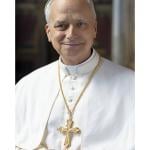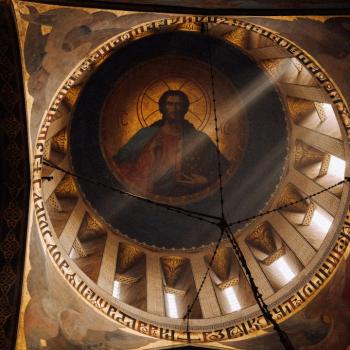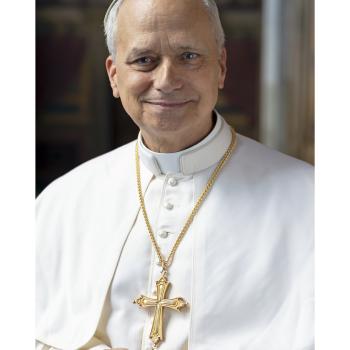Unity and Communion: A Gospel Invitation
Today’s Gospel (cf. Jn. 10:27-30) reveals the intimate union between the Father and the Son – a union that invites us to communion through sacramental grace. We have to learn to understand the sacramental nature of the world, as literature often communicates. For example, we could look at the sacramentality of Beauty and the Beast. First, we have to understand what a sacrament is.
What is a Sacrament? Encountering Christ through Grace
Celebrated worthily in faith, the sacraments confer the grace that they signify. They are efficacious because in them Christ himself is at work: it is he who baptizes, he who acts in his sacraments in order to communicate the grace that each sacrament signifies. The Father always hears the prayer of his Son’s Church, which, in the epiclesis of each sacrament, expresses her faith in the power of the Spirit. As fire transforms into itself everything it touches, so the Holy Spirit transforms into the divine life whatever is subjected to his power (Catechism of the Catholic Church, 1127).
A Tale as Old as Sin: The Beast as a Mirror
The sacraments confer the grace that they signify. We see this happen in the story of Beauty and the Beast. Belle arrives by mistake at the castle of the prince who has fallen into disgrace and has taken on the hideous figure of the Beast. His outward appearance and the enchantment laid upon the castle have embittered his heart, and he acts outwardly just as he seems. He is truly a beast.
The Beast takes the young girl captive, seemingly as a whim and not because of any real need. He feels the pressure to make her fall in love so that he can break the spell that has caused so much pain and sorrow in his heart and in his household. He wants to force her to love him so that he can turn back into a prince before it is too late.
The Need for Grace: Recognizing our Beast
Some have said that the prince represents Adam, so he becomes very much a type of the Biblical sin. Through his sin of inhospitality, he transforms himself into a beast. We might be tempted to look at the story as completely separate from our experience. However, if we are honest, we can see how we have all acted in beastly ways.
Christ at Work: How the Sacraments Transform Us
To properly appreciate the sacraments, we have to recognize our need for them. It is easy to ignore our own beastliness and say “this is the way I am. There is no changing now.” We need time and grace to recognize our need for the sacraments to rescue us from sin.
It is Christ himself who is at work through the sacraments. He is the one who baptizes, though it may be a priest or deacon who is there as the representative of the Church. The Holy Spirit transforms whatever is under his power into the divine life.
Not Thrown, but Called: Communion vs. Chaos
In today’s Gospel, we hear “The Father and I are one” (Jn. 10:30). Jesus reflected frequently on his union with the Father and calls us to communion as well. Philosophers like Heidegger have suggested that human beings are simply ‘thrown’ into the world, with no inherent purpose. But the Gospel reveals something far greater: a God who lovingly calls us into communion, not chaos.
Created for Connection: The Power of Love and Recognition
God made us for connection, but we begin to discover this in the connections we develop for one another. One marriage therapist summarizes the marriage relationship to the phrase that we are “created for connection.” This comes out in the story of the Beauty and the Beast.
At first, Belle is repulsed by the Beast. His disfigured appearance and nasty manners repel her in every way. Slowly, however, she begins to see the goodness that is within him. It is an invitation to all of us to discover the goodness of those around us, especially those who seem more ornery and difficult. At the last moment, when it seems that all hope is lost, she kisses him and the magic begins to work. Her love helps him recognize that he is lovable. The spell is broken, and he returns to his princely state with a new heart.

Becoming Lovable: Letting Grace Do Its Work
The same thing can happen in us in our relationship with God through the sacraments. It is truly his love that makes us lovable. We have to take advantage of the sacraments so that they can work their effect in us. We know that God always works through the sacraments, but we can block their efficacy through our own lack of faith or unwillingness to accept the grace that he dispenses through them.
Take some time this week to reflect on how you are living the sacraments. Are you allowing God’s generous grace to touch and transform your heart? Just as Belle’s love revealed the true heart of the Beast, so Christ’s love, poured into our hearts through the sacraments, transforms us and restores us to our true dignity. In the sacraments, we discover that we are not alone, not thrown into a meaningless world, but drawn into communion with the God who says, “The Father and I are one” (Jn. 10:30).
Subscribe to the newsletter to never miss an article.













